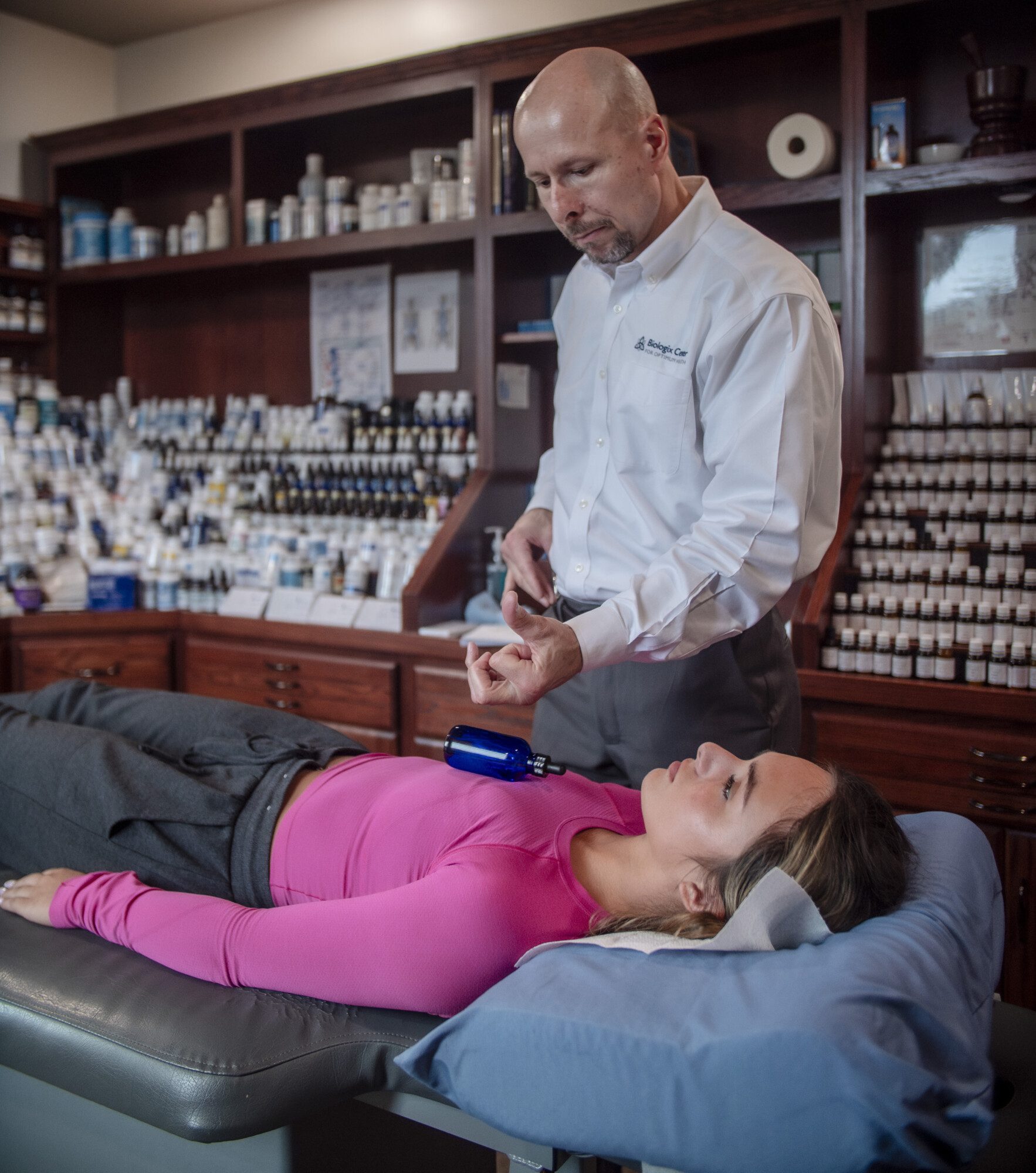What is mast cell activation syndrome?
Mast cells are migrant, connective tissue cells containing granules rich in histamine, heparin, and other substances. They are located throughout the connective tissues of the body, most notably beneath the skin’s surface, within the nerves, near blood vessels and lymphatic vessels, throughout the respiratory system, and in the digestive and urinary tracts. When working properly, they contribute to a person’s immune system by releasing histamine and other substances during stress-induced, inflammatory, and allergic reactions. However, mast cell activation syndrome, or MCAS, occurs when the body’s mast cells become overactive, releasing excessive amounts of their contents, also known as mediators, into the body.
When a person is exposed to stress or anything that the body perceives as a threat, healthy mast cells release mediators to cause inflammation, helping the body heal from injury or infection. Likewise, when a person experiences an allergic reaction, healthy mast cells release mediators known as histamine to cause the body to sneeze and rid itself of whatever is causing the adverse reaction.
People with MCAS release a surplus of mediators far more frequently than a healthy person does. As a result, they experience a wide range of both mild and severe symptoms that have been known to affect almost every system of the body. See below for an in-depth assessment of symptoms often associated with MCAS, as well as how we approach treatment differently at the Biologix Center.
How is mast cell activation syndrome typically diagnosed?
Researchers are not entirely sure what causes MCAS. However, it can be associated with other chronic conditions such as POTS, Lyme disease, Chronic Inflammatory Response Syndrome (CIRS), biotoxin-related illnesses, multiple chemical sensitivity, and mold exposure. It is likely that there is a genetic component to MCAS, as most MCAS cases present evidence that at least one of the patient’s first-degree relative experiences MCAS symptoms as well.
Triggers can be induced by allergens, pharmaceutical drugs, smells, stress, hormonal changes, and even mast cell hyperplasia, which is a rare condition that can occur with some chronic infections. Common triggers include insect bites, sensitive foods, antibiotics, ibuprofen, opiates, anxiety, pain, temperature changes, chronic fatigue, exercise, infections, perfumes, chemicals, and a woman’s menstrual cycle.
Since it can, but not always, be connected to so many disorders, it is easy for doctors to misdiagnose MCAS. The condition is similar to multiple chemical sensitivity, histamine intolerance, and mastocytosis, all of which share many of the same symptoms and triggers. Click here to read our blog post differentiating the three pathologies.
At the Biologix Center, we will do more than provide temporary relief. We will work to improve the way your entire body functions, restoring you to optimal health.
Our two-week program will allow our doctors to get to know you and your body’s specific needs during daily, hour-long treatment windows, so that we can find the root causes of your body’s issues and create a specific treatment method that is compatible with your body’s unique make-up. Request your patient packet now to learn more about our approach!
What are the symptoms of mast cell activation syndrome?
MCAS symptoms are wide-ranging and vary from patient-to-patient. At the Biologix Center, we recognize that our patients’ symptoms are very real, which is why we commit to using everything available to us to promote true healing. We will never, under any circumstances, dismiss you or your symptoms. We are here for you!
Hypersensitivity
People with MCAS become global reactors, meaning their bodies might experience inflammatory and/or allergic reactions from fragrances, foods, EMF radiation, synthetic clothing, alcohol. A person with MCAS could potentially be hypersensitive to any stimulus.
Mold Sensitivity
MCAS patients might notice excessive mold sensitivity where previously mold was not an issue.
Skin Sensitivity
Patients struggling with MCAS symptoms often notice itching, flushing, or excess sweating. They often develop a rash or hives.
Bruising
Many patients with MCAS symptoms notice that they bruise very easily.
Problems with the Eyes, Nose, and Throat
Patients may experience itchy, watery eyes and/or nose, as well as itching and swelling on the tongue or lips. Swelling in the throat may prevent air from getting to the lungs.
Brain Fog and Fatigue
Some people struggling with MSAC symptoms experience difficulty concentrating, lightheadedness, and fatigue.
Headaches
People with MCAS symptoms may struggle with migraines and headaches ranging from mild to severe.
Difficulty Breathing
MCAS patients often have trouble breathing due to wheezing. In severe cases, some patients can go into anaphylactic shock. Anaphylaxis causes a rapid drop in blood pressure, a weak pulse, and a narrowing of the airways in the lungs. It occurs when mast cells release all of their contents at once, and it can be life threatening. Please seek immediate help if you or someone you know is experiencing this symptom.
Nausea
Some patients with MCAS symptoms experience nausea, stomach pain, and even vomiting sometimes triggered by certain foods and smells.
Diarrhea
In addition to nausea, some patients with MCAS symptoms notice bloating, gas, intestinal cramping, and/or diarrhea.
Congestion
Many patients experience itching, sneezing, sore throats, and even trouble breathing. Some patients describe their symptoms as being somewhat similar to those of seasonal allergies.
Chest Pain & Changes In Heart Rhythm
Some people struggling with MCAS symptoms experience a discomfort in their chest as well as an irregular heart rhythm. This is because some cases of MCAS are associated with POTS and/or anxiety.
Depression & Anxiety
Coping with persistent symptoms leaves many patients feeling hopeless, especially since the majority of medical doctors have yet to find long-lasting treatment methods. Reach out to a friend, family member, or counselor for extra support during your battle with mast cell activation syndrome.
If you are suffering from any of these symptoms or any additional symptoms not listed here, please contact us. We can help return your body to its natural rhythms. Request your patient packet today!
How is mast cell activation syndrome typically treated?
Medical doctors typically suggest OTC and prescription drugs, depending on your most noticeable symptoms and their severity They may prescribe mast cell stabilizers, antileukotrienes, or corticosteroids. They might suggest antihistamines to block histamines, sleeping aids to attempt to correct your sleeping habits, or antidepressants to lift your mood. However, the majority of these drugs only serve to suppress or mask the symptoms, and can even cause additional symptoms, such as drowsiness, as a side effect. Even natural mast cell stabilizers, such as quercetin and Vitamin C, only serve to “manage” your symptoms temporarily.
Doctors may also suggest elimination diets and an avoidance of known triggers. While this is a fine approach, eliminating the body’s exposure to triggers without correcting the underlying issues in your body’s chemistry does not help the body heal.
At the Biologix Center, this is never the case. We will help enable the body to regain its ability to differentiate between what is a threat and what is not, and as such, give our patients the ability to finally find lasting relief. Check out one of Dr. Jernigan’s most comprehensive articles on the issues and treatment surrounding MCAS here!
How does the Biologix Center treat mast cell activation syndrome differently?
While the prevailing medical thought is to first and foremost mask any symptoms by prescribing antihistamines for sensitivities, sleep-aids for exhaustion, and purple pills for stomach pain, none of these drugs address the symptoms’ underlying causes. The Biologix Center uses precise, real-time testing and treatments, developed by Dr. David Jernigan, that directly target the many genetic and epigenetic issues associated with every case of MCAS as well as the primary metabolic pathways that regulate mast cell degranulation. In doing so, wevenable the body to naturally, and often rapidly, achieve lasting relief. The goal is to accomplish the long-term restoration of health without encouraging a dependence upon medications.
Using tests such as Biospectroscopic Emission Sequence Testing (BEST), developed at the Biologix Center over 20 years ago by Dr. David A. Jernigan, D.C., we can eliminate much of the guesswork in doctoring. Unlike conventional blood tests that produce merely a snapshot of a patient’s blood on the day it was drawn, our constantly evolving technologies provide far more insight into the root causes of a patient’s symptoms, as well as treatment options that are tested for compatibility and effectiveness with each patient’s unique body, before even beginning treatment!
Our doctors can complete sensitive testing of your body using direct resonance testing along with the actual human recombinant enzymes, Histamine N-methyltransferase, MAO-A and B, MTHFR, Aldehyde Dehydrogenase, Diamine oxidase, and others in the metabolism of histamine and inflammatory pathways. They can then use Fractal Frequency Modulation to help restore your body’s ability to produce these enzymes or help your body to balance them. Of course, if your MCAS is secondary to biotoxin exposure or multiple chemical sensitivity, treatment will also include detoxification and addressing your surrounding environment.
Every system of the body is interconnected and interdependent, meaning that each system must be precisely addressed in order for the body to achieve optimal health. Health care delivery is often a minimalistic approach. It is far easier to prescribe a painkiller or antibiotic than to provide the maximum applied effort needed to truly restore the optimum form and function of the body. The Biologix Center’s approach is for those who truly desire to be well, not just feel well from drug-induced illusions of health. The best of every healing method and testing is brought to your unique case, in one-on-one, hour-long treatment sessions with the doctor treating you.
If you’d like more information on becoming a patient at the Biologix Center, please request your patient into packet now!
“The ideal doctor is not a specialist in diseases, but one who understands disease, yet specializes in restoring what is most optimum. From there, the body can often heal itself.” – Dr. David Jernigan, D.C.
A Novel Cause of Mast Cell Activation Syndrome: Latent H1N1 Viral Infection
The doctors at the Biologix Center for Optimum Health, in [...]
Want to learn more about our unique, all-inclusive clinical program?
Jumpstart your body’s ability to fight chronic disease with our intensive, one-week clinical program offering the most thorough diagnostic assessments and comprehensive treatment methods available today!
Develop a personal relationship with your doctor as he or she applies the best of every healing technique we have to offer to your unique case in multiple, one-on-one treatment sessions.
Our initiative has resulted in thousands of success stories and we look forward to adding yours!


